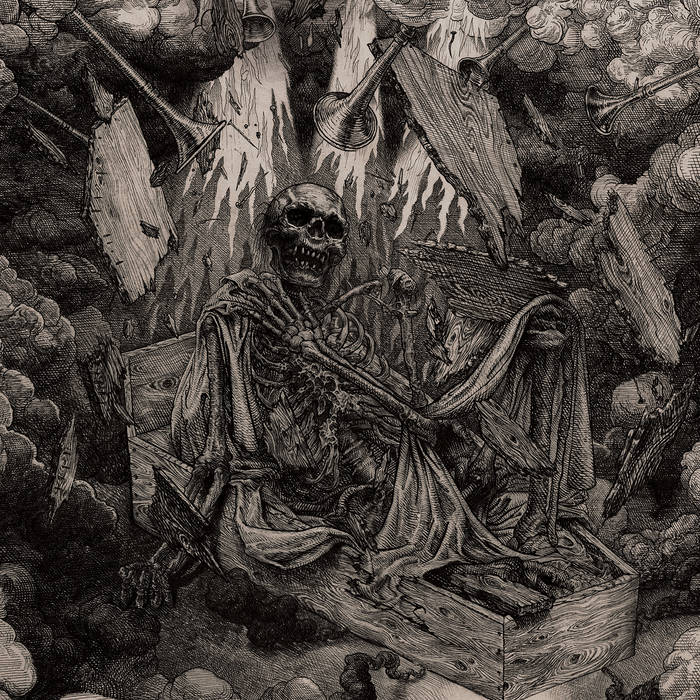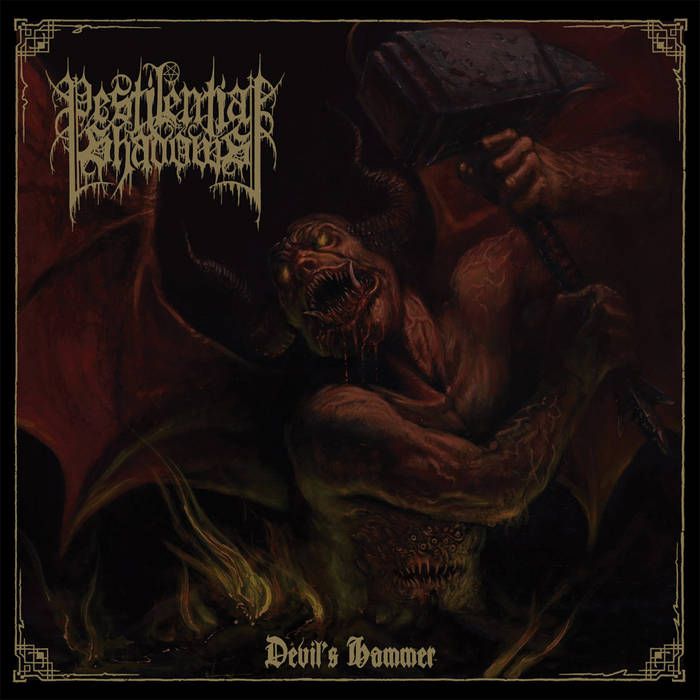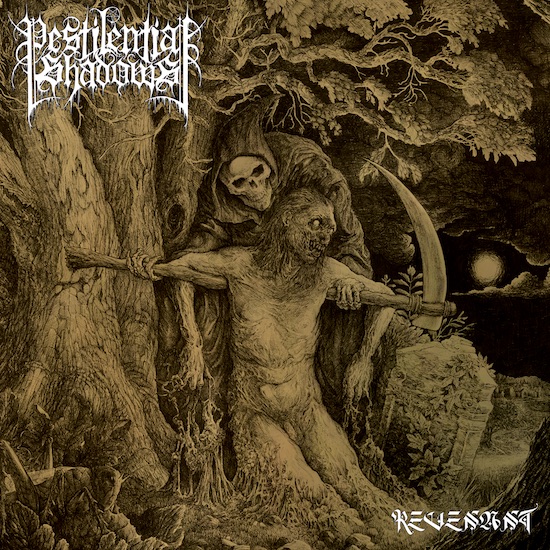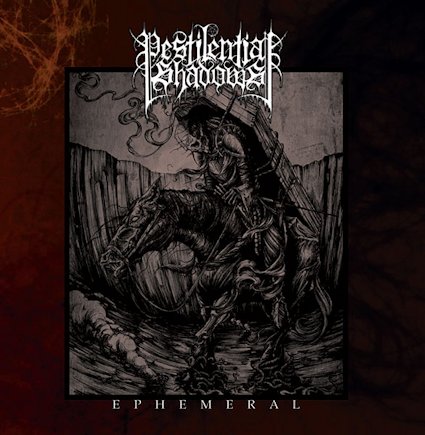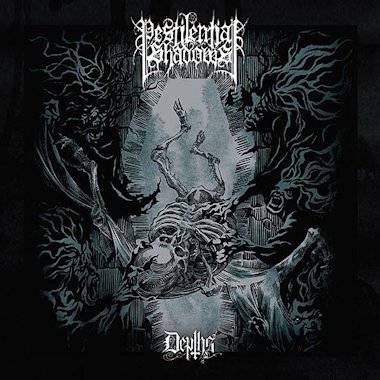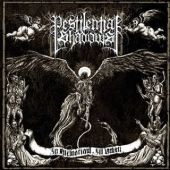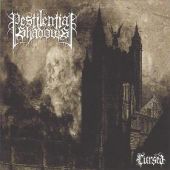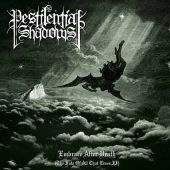Pestilential Shadows - Interview
True black metal is Satanic and intended for the harnessing of dark energy. It has been this way since the genre's second wave roots, which were steeped in Theistic Satanism. For Australia's Pestilential Shadows, the creation of black metal is an art beholden to the occult and various esoteric studies; to share knowledge and wisdom among their coven in order to grow as artists and individuals. Much like the tape trading and print zine days, only done with ideas, philosophies and literature. Having been birthed onto the scene back in '03, Pestilential Shadows are veterans to the circuit but don't expect any kind of early 90's Funeral Winds demo - or Darkthrone - "A Blaze In The Northern Sky" revelry: no dry buzz and no recorded in an abandoned basement vibes, only crisp and dynamic, contemporary black metal - aggressive and dark - crafted with malice intended. The world of Satanism is vast as it spans over a countless variety of ideological facets. Definitely not one size fits all. I interview Satanic black metal bands as a way to not only promote Left Hand BM, but to also learn a bit each time about the bewildering world of the occult. During my latest interview, Balam of Pestilential Shadows gives us some insight from his perspective into the sphere of Satanism/Luciferianism along with a bit of knowledge about their latest "Devil's Hammer" LP. Let us prepare a ritual's circle now for a discussion with one of the Australian scene's visionaries.
Jeger

Pestilential Shadows started back in '03 and you've been quite busy as your discography proves. How did the band start and what were your intentions going in?
I had been playing in a local black metal band, Secratain, since 1997. When that band had run its course and members left, I formed PS with Azgorh from Drowning The Light. We had the same outlook and goals of producing serious black metal dedicated to the dark arts, death and plague.
Satanism is more than just a common theme in your music; it appears to be a genuine lifestyle. When and how would you say your journey toward Satanism began?
Well, growing up I was always drawn to the occult and the darker side of things. In the early 90s at school whilst some kids got into grunge and metal, I always thought it wasn't extreme enough and ventured first into doom and old school death metal. Around '94, I found black metal and it spoke to me unlike anything else. These people were living and breathing it. I pretty much gave up listening to anything else and immersed myself in black metal and the occult.
Your latest LP, "Devil's Hammer" is a weapon of an album: released via Northern Silence. What inspired it?
There was a line up shift with 3 members being replaced, mostly because of the extreme distances they lived and no real desire to sacrifice their lifestyles in order to push the band 100%. The two new members (Mourn & Krvna Vatra) immediately started working with me on new material and from what I thought may have been a hopeless exercise turned into a focused and driven entity. I had also been busy writing music and lyrics during the pandemic lockdowns so I had time to restructure the focus of the band.
What was the songwriting/recording process like for the new material and what did you do differently than your previous "Revenant" LP?
Writing and recording "Revenant" was difficult, seeing as the band members lived so far away. It took a long time to gather material from them to be a part of the album. Because the current line up lives so close, it was much easier to write and bounce ideas off each other. Then we all booked a week off work, went to the studio with all our ideas and recorded the album. It was a much better way to work with each other directly in order to greatly improve the ideas and dynamics.
What are your plans as far as live rituals in support of the new album?
We have been playing some shows in Australia to promote "Devil's Hammer" and we have some more booked soon to end the year. Krvna Vatra has since left the band to focus on his music in Krvna, so we now have a new guitarist, Drekavac, and have been writing new material for album number eight. With the new lineup we hope to tour Europe next year, so going through the process now talking to the right people to help us make it happen.
I've interviewed bands whose members are practitioners in Dragon Rouge, so I'm familiar with that particular order. However, I've just been made aware of Ordo Ater Anguis and know nothing about it aside from the fact that it's an order consisting of Australian black metal bands/artists and that Pestilential Shadows are a part of it. Is OAA a magickal order or something else entirely?
It started with a small group of individuals dedicated to the finding and practice of occult knowledge, sharing occult books and practices. It connects like minded individuals to trade musical ideas and talents; bands sharing members for new ideas and goals.
I've received a number of varied answers to this question from different artists. From your perspective, what are the differences between Satanism and Devil worship?
Satanism casts a large net of different genres and sub-genres of philosophy. It can range from housewives interested in dark magic all the way to Grand Masters of Satanic orders, so it can vary greatly. Devil Worship is more focused on a single entity or dark force; more investment into ritual & study, and less about casual Satanism (Lavey practices).
The flip side to the coin of Satan is Lucifer. It's said that one cannot navigate the Satanic darkness without the light of Lucifer. Do you find much truth in this?
I understand the Luciferian angle of this but don't necessarily follow it. Navigating the pure darkness of dread and suffering of the human mind and the holy negative aspect of the Satan 'opposite of God (Yahweh)' need no angelic light to guide it. What happens when we die? Do we see light or are guided by a figure of light to then be against it? Only the existential dread and darkness of a Satan is pure. And the destruction of God's children (humankind) has no light bringer behind it.
How do you feel about mainstream black metal bands who use Satanic images and incorporate Satanic themes into their music as a means to fit in and sell records?
It's an edgy selling point for a lot of bands and it appeals to heavy metal fans rather than true black metal people. When do these bands literally go out of their way to cause suffering to people? Or have deep ideas and philosophies that are not just looking evil? I think people who embrace themselves in true Satanic ideas, occult practices, negative studies and thoughts can tell the difference a mile away between real conviction and heavy metal cosplay.
PS got their start during the onset of social media and streaming platforms. How do you feel these advances in technology have impacted the scene? Is the underground even underground anymore?
I guess you could say that the internet mostly put an end to a lot of print zines and tape trading in the western world, but also opened the potential to contact like-minded people from around the world to find new bands from obscure places. It's a double edged sword. Now, bands feel the need to use it as a political platform or a showing of pointless things behind the scenes. Where has the darkness and mystery gone?
Is there anything you wish you would've done differently during the start of your musical journey?
I don't think there would be any changes - the message and conviction has always stayed the same and has led us to the path we are on now.
Do you have a message for your followers?
Black metal is not about fun and games: it is dangerous, it is about conviction and a life path - hand in hand with darkness and evil. Thank you for the interview and hope to see you in 2025!
Discography
Upcoming Releases
- Morrath - Obscure Abominations - Feb 25
- Chalice - Divine Spear - Feb 27
- Blackwater Drowning - Obscure Sorrows - Feb 27
- Vide - Aux Enfants Des Ruines - Feb 27
- The Leaving - The Leaving - Mar 06
- Serpent Icon - Tombstone Stories - Mar 06
- Insect Inside - Reborn In Blight - Mar 06
- Triumpher - Piercing The Heart Of The World - Mar 06
- Lömsk - Act II - Of Iron And Blood - Mar 06
- God Against Humanity - The Judgement - Mar 06
- Miserere Luminis - Sidera - Mar 06
- Gravemass - This Is The Way - Mar 06
- No/Más - No Peace - Mar 13
- Monstrosity - Screams From Beneath The Surface - Mar 13
- Against I - Anti Life - Mar 13
- Empire Of Disease - While Everything Collapses - Mar 19
- Hanging Garden - Isle Of Bliss - Mar 20
- Putred - Blestemul Din Adânc - Mar 20
- Gaerea - Loss - Mar 20
- Diatribes - Degenerate - Mar 20

